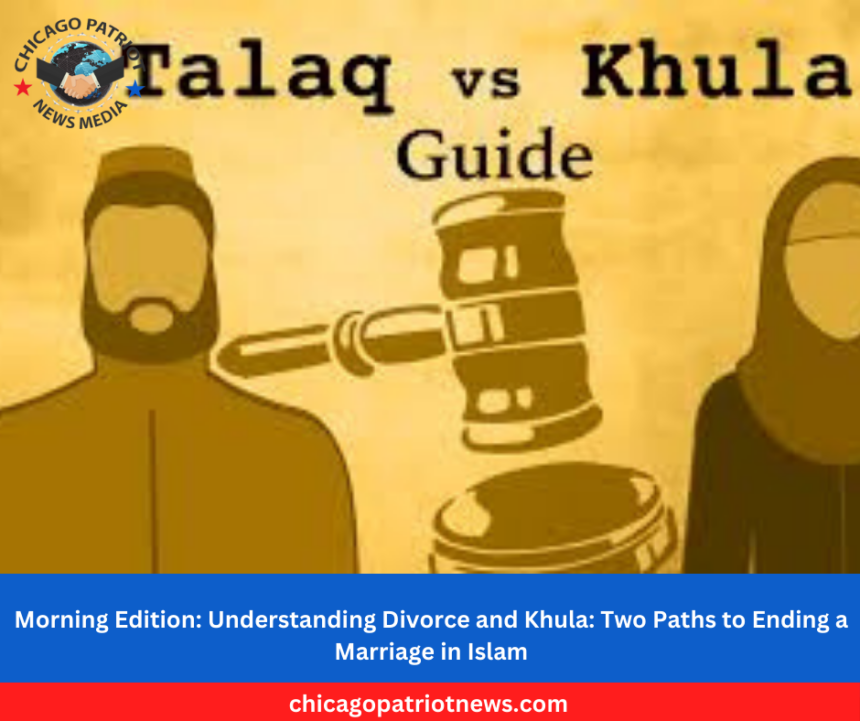Chicago April 3, 2025
Understanding Divorce and Khula: Two Paths to Ending a Marriage in Islam
In Islamic law, divorce and khula are two different ways to end a marriage. While both options provide relief for couples in unhappy marriages, they have distinct differences in terms of process, implications, and rights.
Divorce, or “talaq,” is initiated by the husband, who has the sole right to end the marriage without his wife’s consent. Despite this, the husband remains responsible for fulfilling financial obligations, including paying the dower (haq-e-mehr).
On the other hand, khula is a woman’s right to seek separation from her husband. This process requires the wife’s consent and often involves her giving up financial claims, such as the dower, as compensation to the husband. Khula is typically facilitated through family courts to ensure the wife’s decision is voluntary and justified.
Recent developments in Pakistan have highlighted the growing awareness of women’s rights in seeking khula. The Federal Shariat Court has ruled that women opting for khula must forfeit their haq-e-mehr, emphasizing the contractual nature of this separation.






